
Hundreds of students, parents and teachers shared their views on the education system with us – this is what they had to say.
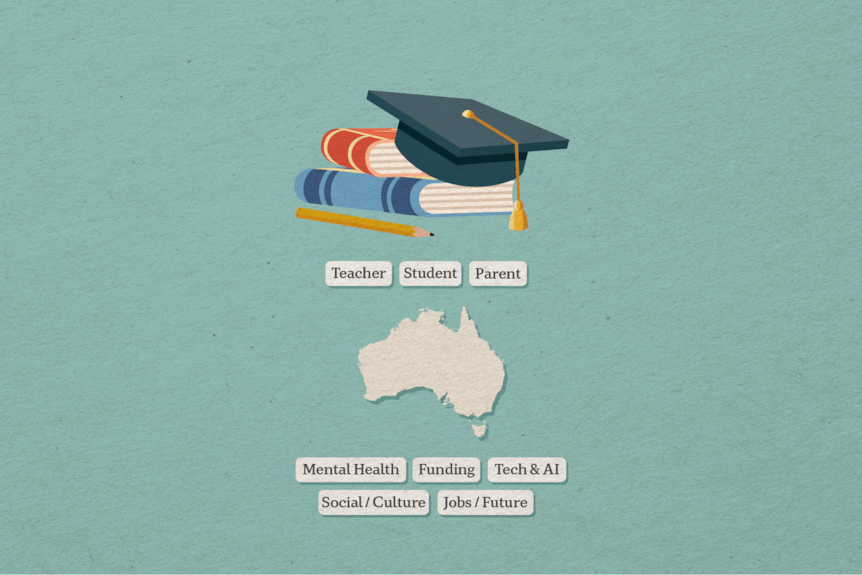
Earlier this year Australians from across the country responded to a call from viewers embedded in a story about education, inviting them to share their experiences with the education system.
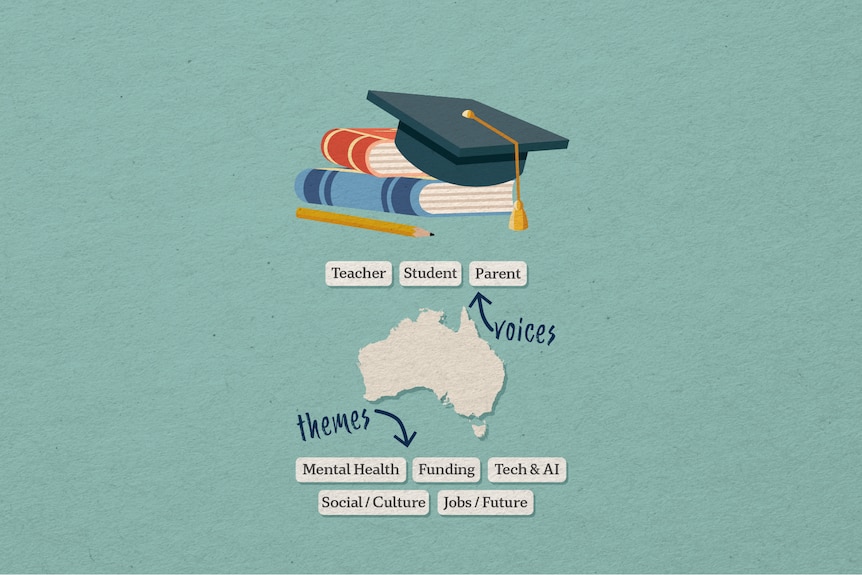
While there were hundreds Different opinions and voicesthere were many here too Recurring themesAddressing various issues Affects students, teachers and parents In another way.

Listener leads help inform our coverage, but we also wanted to share some of the answers back with readers, because they often have insight, speak to different sides of the same issue, or come from a voice that’s always been around. Not included in the conversation.
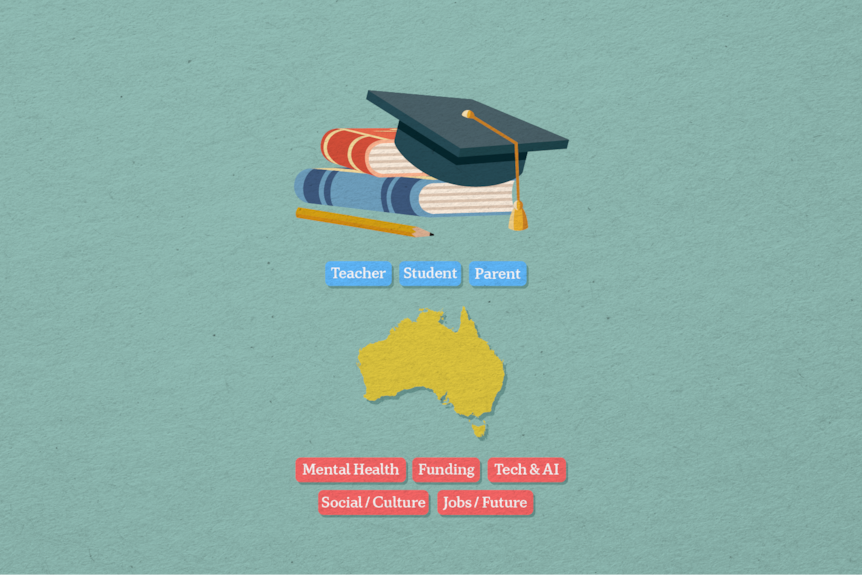
As you scroll through the quotes below, the map and demographics panels will indicate where the view is from. A student, parent or teacheras well as their A matter of concern.

Please note: Some names have been changed due to privacy concerns and fear of repercussions for speaking openly, and some responses have been edited or paraphrased for clarity.
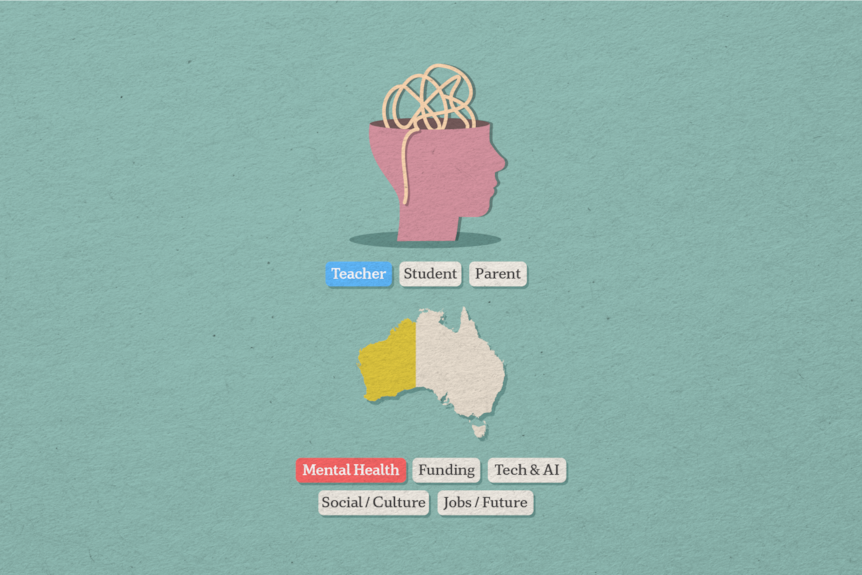
“The whole system is broken. It requires kids to have square pegs despite large class sizes, a range of individual needs, and goal posts that keep changing. It’s set up for failure.”
Sarah, Teacher, WA
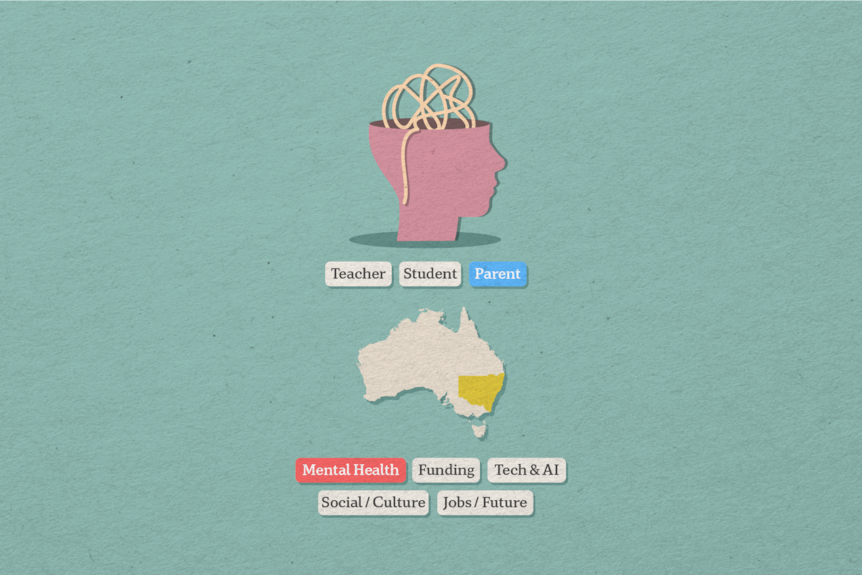
“Violence is a major problem created by perpetrators who frame themselves as victims, resulting in a loss of faith in the system. [and] Suicidal thoughts, especially in high school.”
Gina, father, NSW
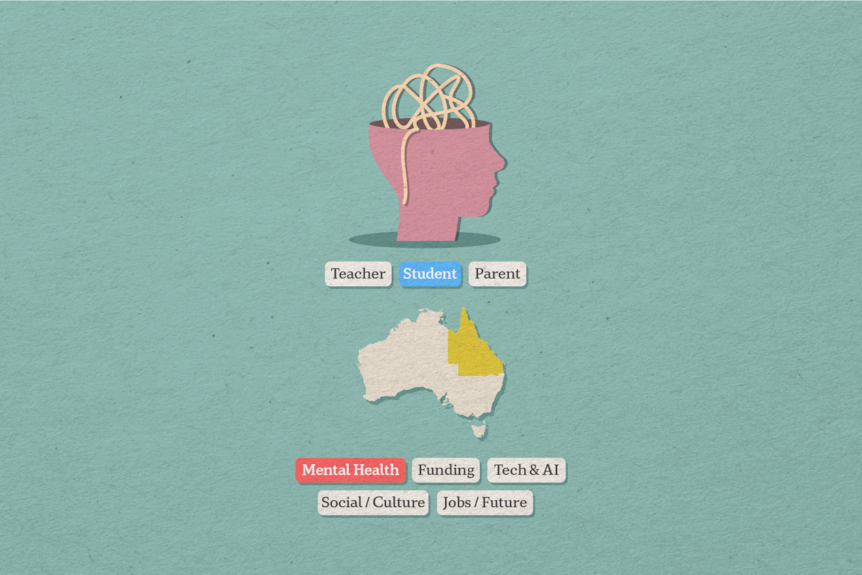
“Everyone suffers from mental health. I’m certainly not the only one. But instead of support, everything is blamed on guilt, values, behavior… We’re just kids! We need help, not analysis.”
Marissa, Student, QLD
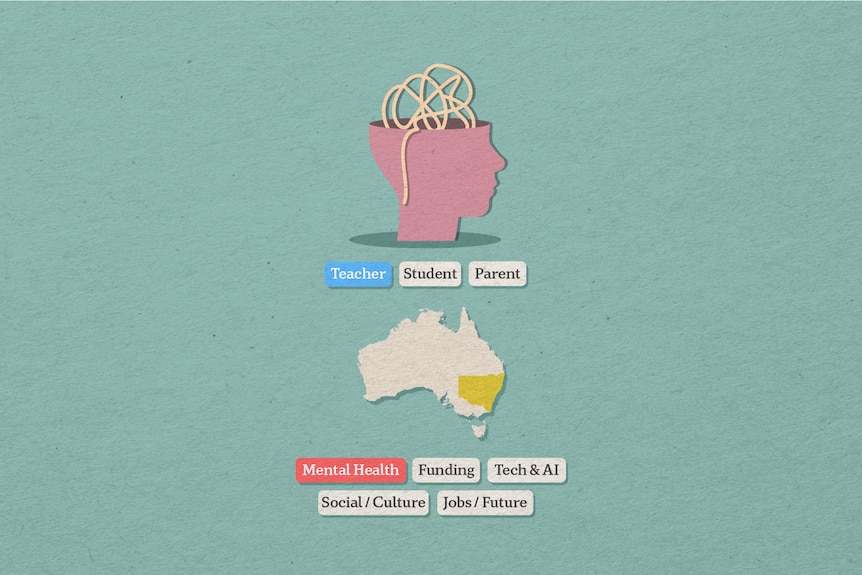
“Teacher mental health is so important, but often overlooked. When teachers lose their ability to inspire. It doesn’t just hurt them, but the students who depend on them.”
Kelly, Teacher, NSW
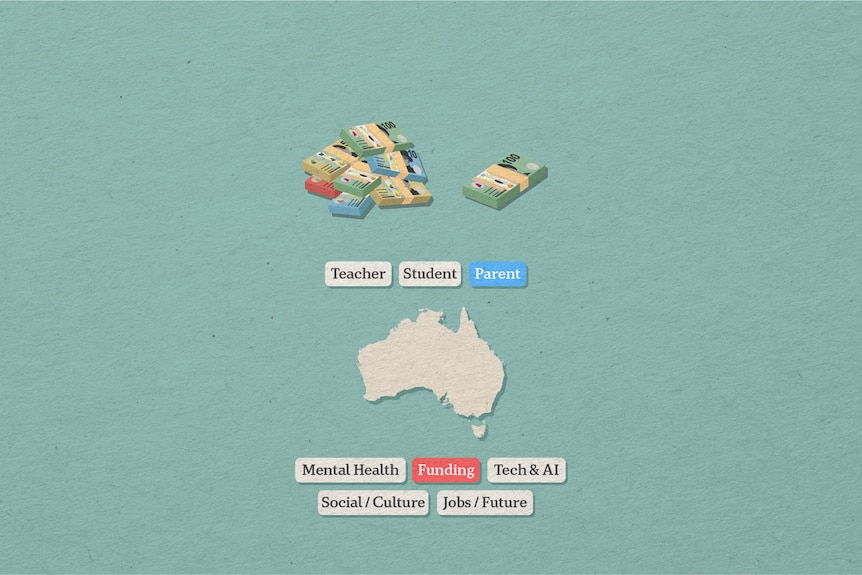
“I am concerned about the growing inequality and the gap in funding between the private and public sectors.
Elizabeth, parents, ACT
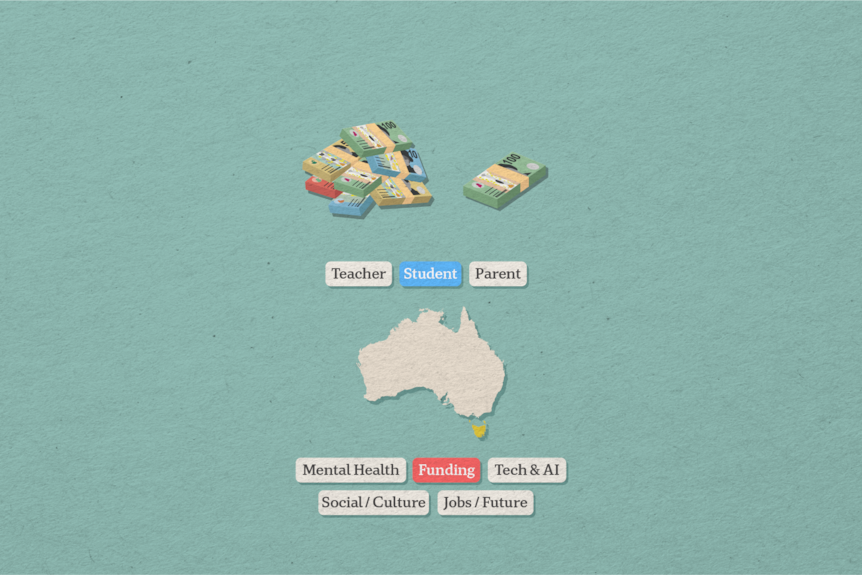
“Public education is in decline because private schools are underfunded. Students are struggling, performance is declining, and inadequate public transportation is another obstacle.”
Luke, student, TAS
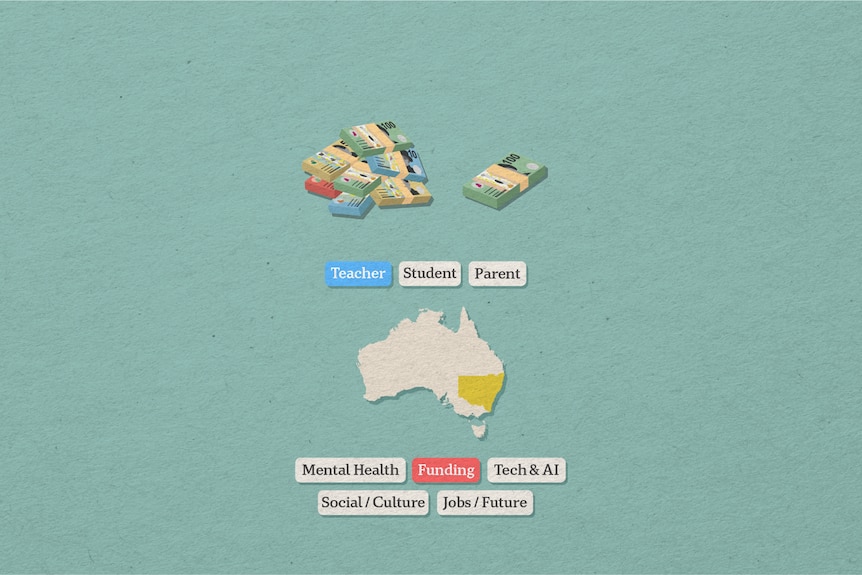
“Government is putting children at a disadvantage due to lack of resources and funding. The curriculum, the curriculum, the support services… they are not worth it. It’s a joke, to the point where I’m starting to think about giving up teaching. ”
Alex, Teacher, NSW
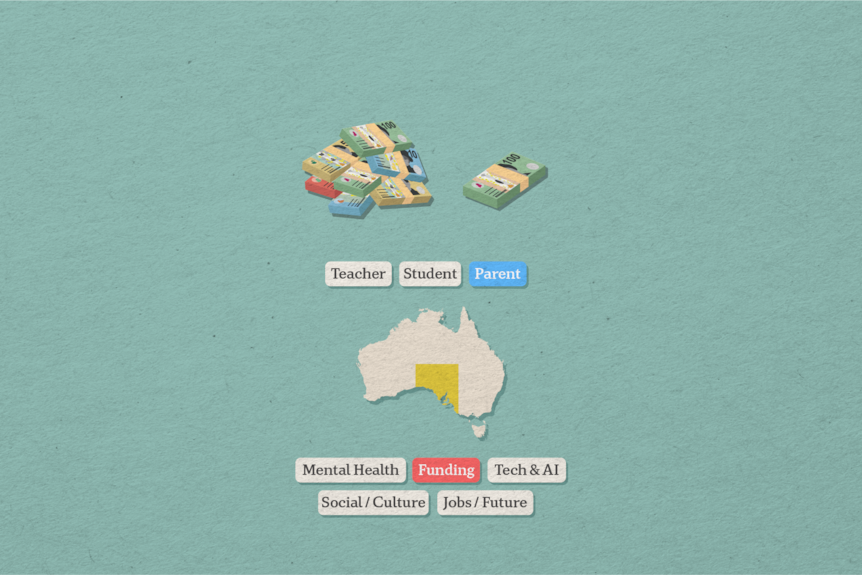
“I started homeschooling because of the lack of attention in public education. Many gifted children have no incentive to excel, while flexible classrooms cannot adapt to individual needs. ”
Jimmy, father, SA
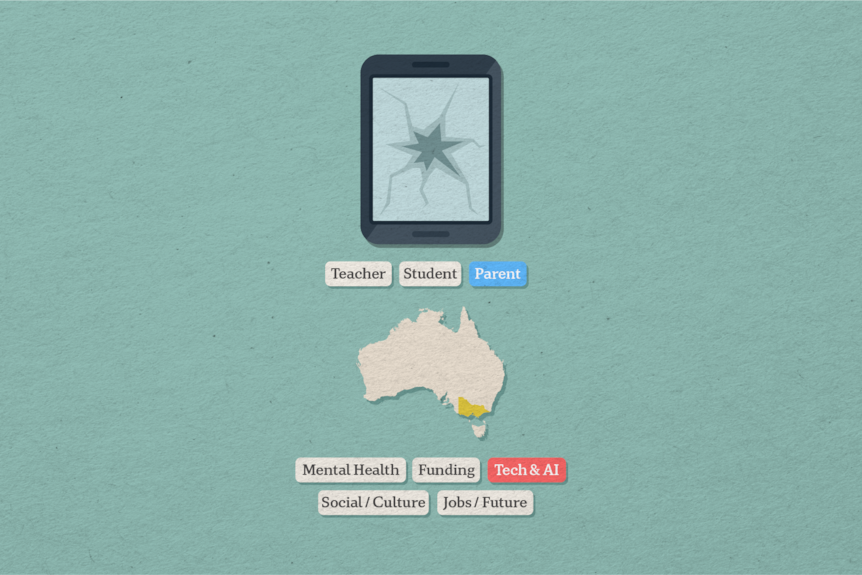
“As the world changes rapidly, so do our needs. With the Internet and the constant exchange of (mis)information, I wonder what [schools] The offer will remain relevant in the future. I don’t think we are fully prepared.”
Dicle, Father, VIC
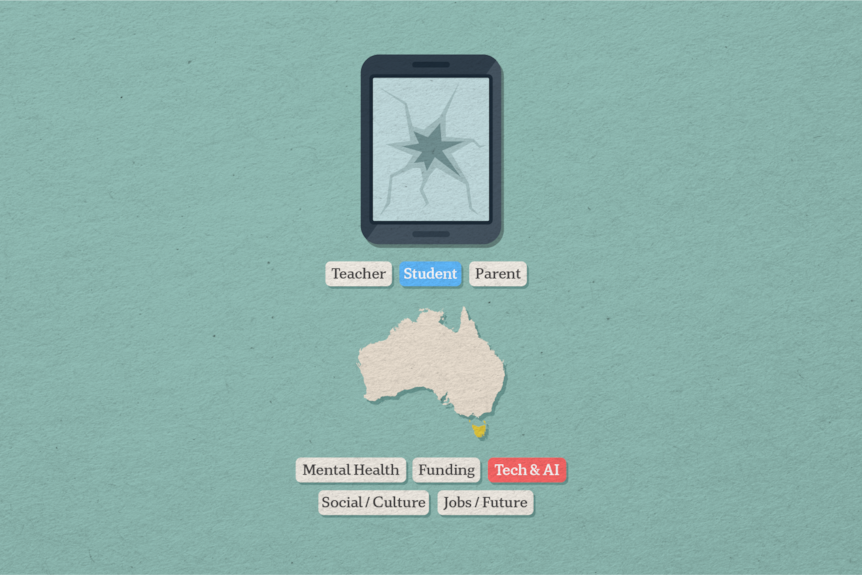
“AI is increasingly a problem. Despite the regulations, a lot of work is being done with AI. I don’t agree, but I don’t know what can be done. It’s impossible to properly track and solve.”
Jessica, student, TAS
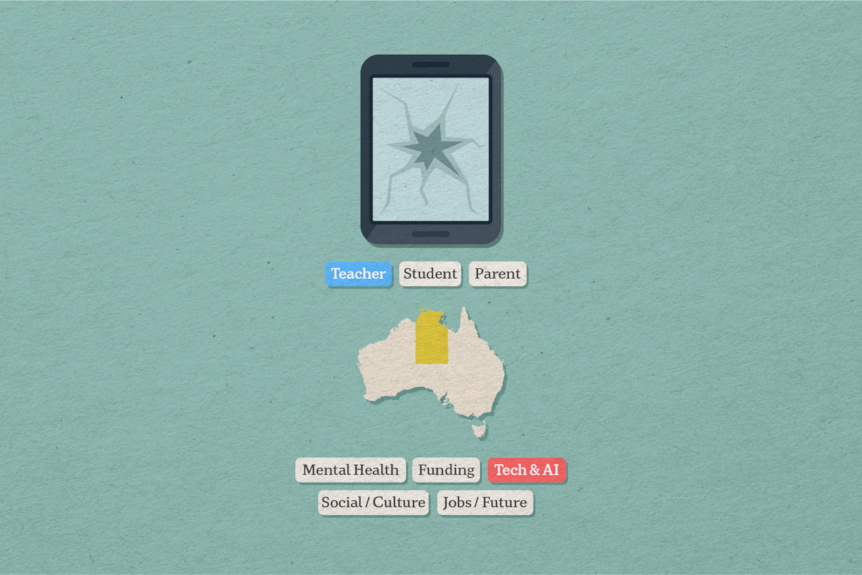
“Families with limited access to technology at home want to learn more, while families who live online want to ban it. Responsible use is just moving to school.”
Roger, teacher, NT
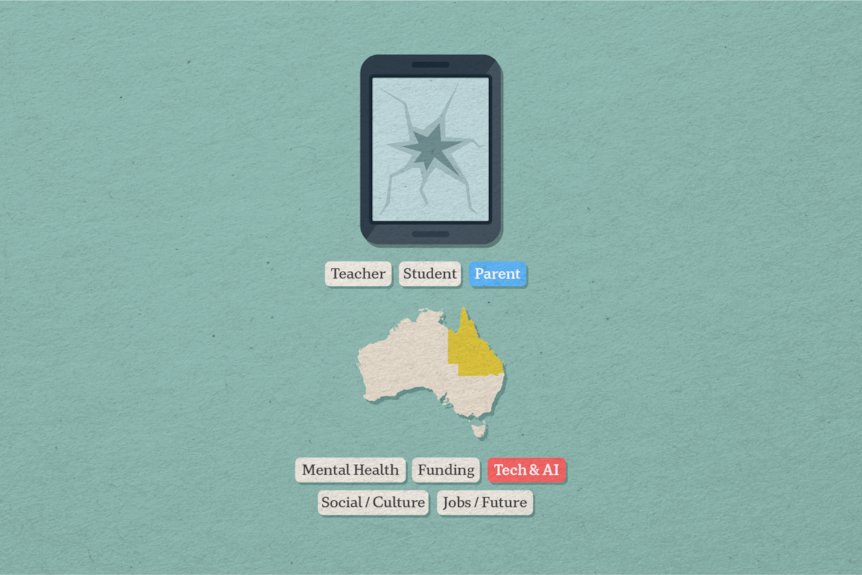
“There’s a lot of reliance on iPads and computers at school. My children’s book list was just a list of apps – that’s it – and didn’t require the use of pen or paper.”
Elijah, father, QLD
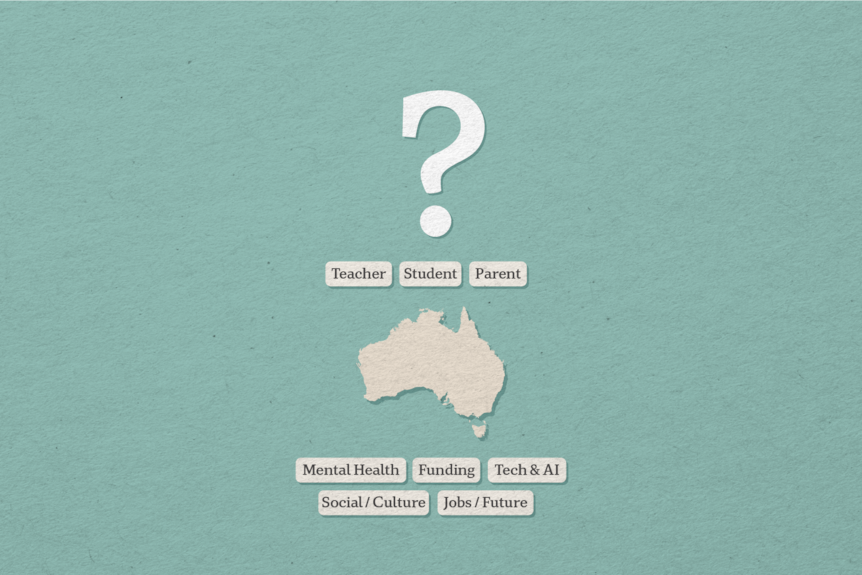
Do you have a learning story or experience you’d like to share? Contact via Form at the end of this story.
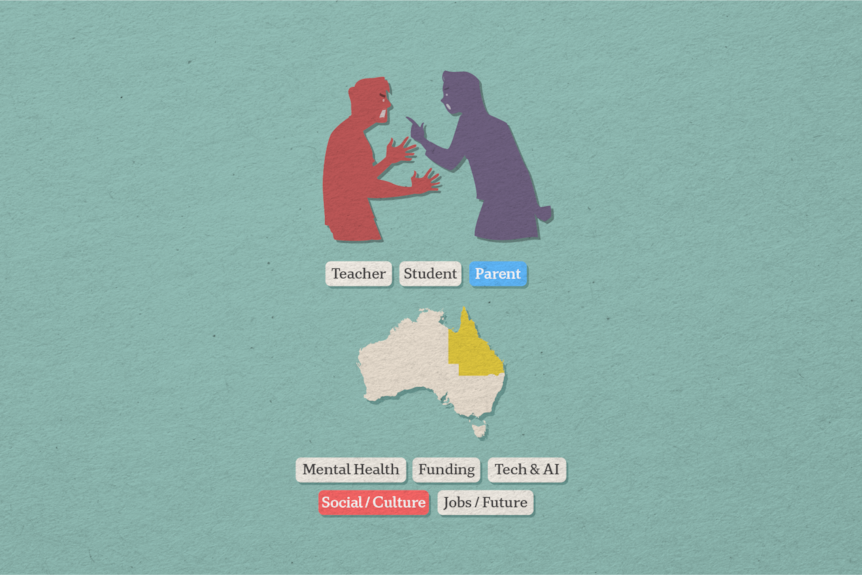
“The most important factor that gets left out of the conversation is what happens at home. Discipline, passion—those things start at home. Without that, schools would be ineffective anyway.”
Liat, Father, QLD
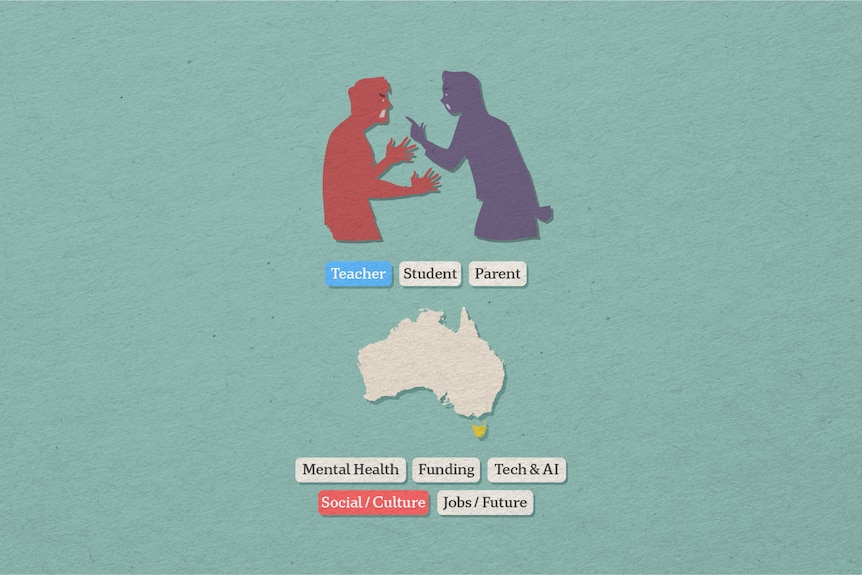
“The school structure hasn’t changed in decades, but the world has. Instead of adapting, we increase subjects, reduce hours, reduce resources, then complain. It’s not sustainable. ”
Gill, Teacher, TAS
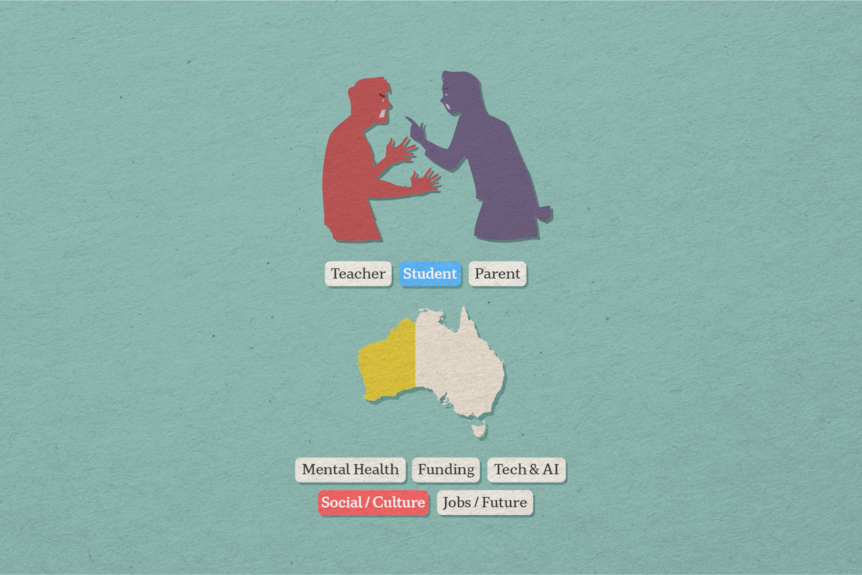
“The system is failing. The curriculum is not fit for the future. And managing behavior – often violent or harmful, targeting Indigenous people or migrants; not to mention drugs and alcohol – is a huge problem.”
Pippa, student, WA
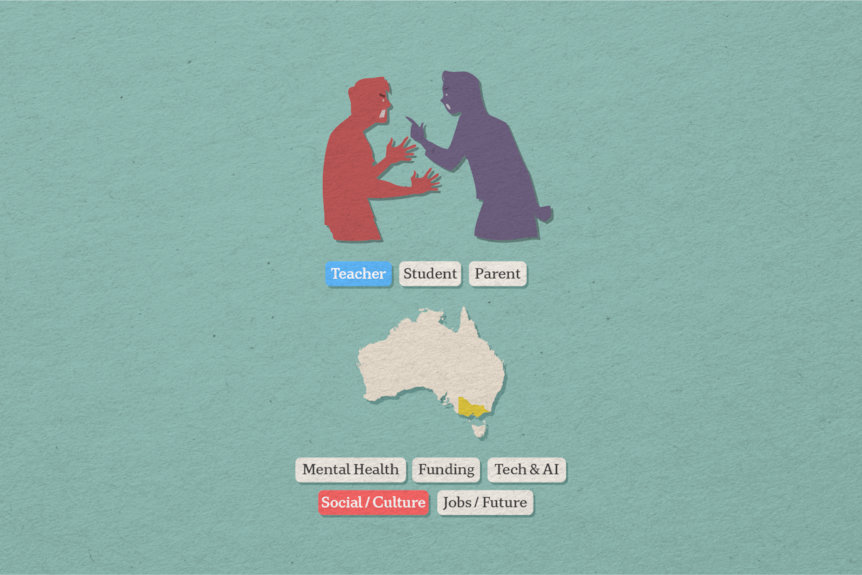
“The pressure from parents trying to influence the classroom is worrying. Young teachers can’t back down, and children often value how much they learn. It’s a vulnerable time in life. It’s empowering.”
Sherlyn, Teacher, VIC
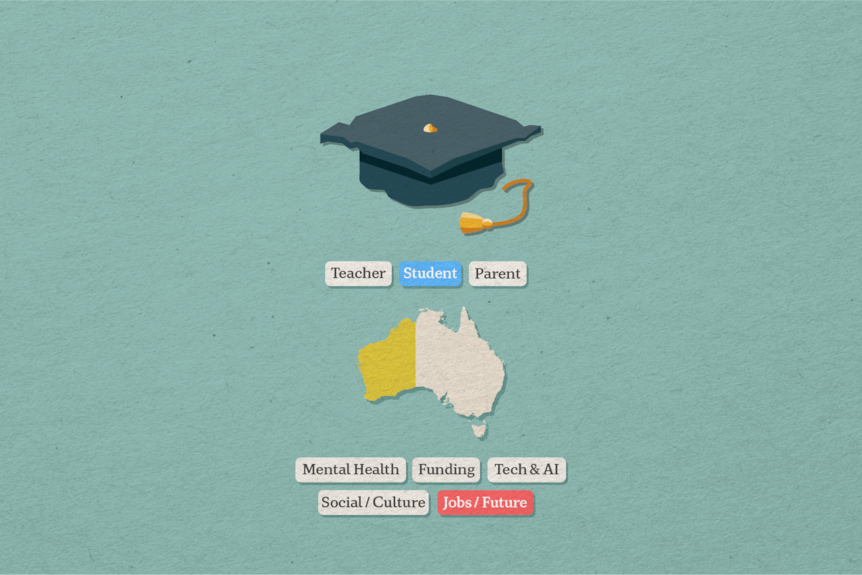
“I don’t know what to do, my grades have dropped a bit and I feel like if I keep it up I won’t make it in life. I don’t know what happened. I’m doing well but now I’m on my own I ask the ability to proceed.
Ask, students, WA
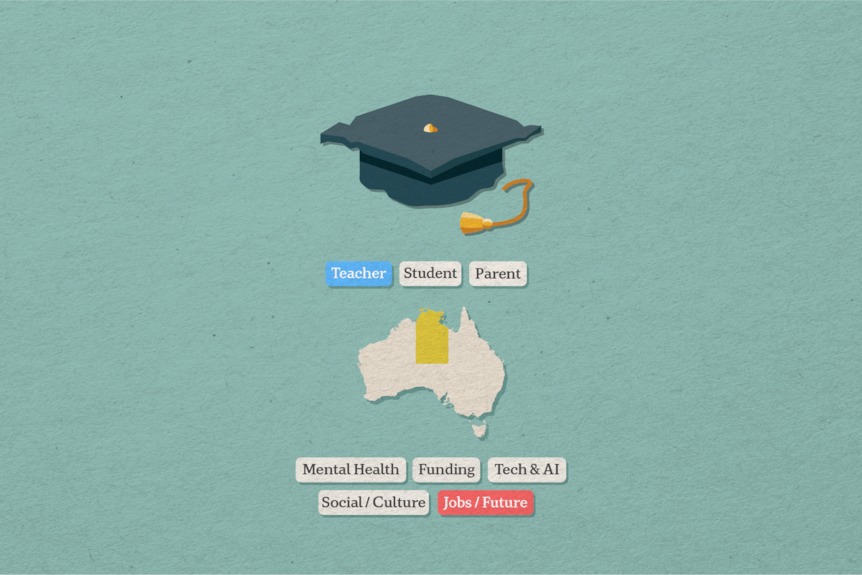
“Kids are being burned out before they reach the workforce. And instead [really educating them]schools are designed only for funds and university placement. The rest are left behind.”
Nicole, teacher, NT
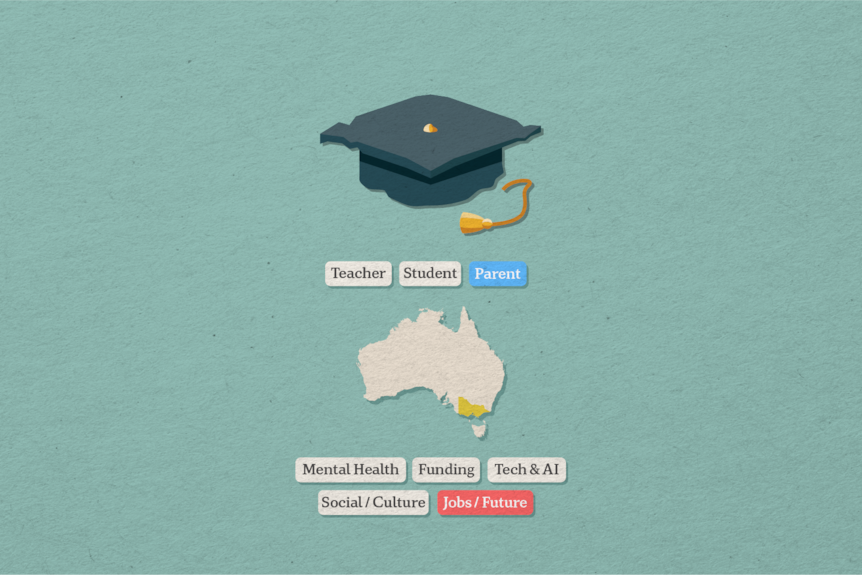
“As the world changes rapidly, so do our needs.
Louis, father, VIC
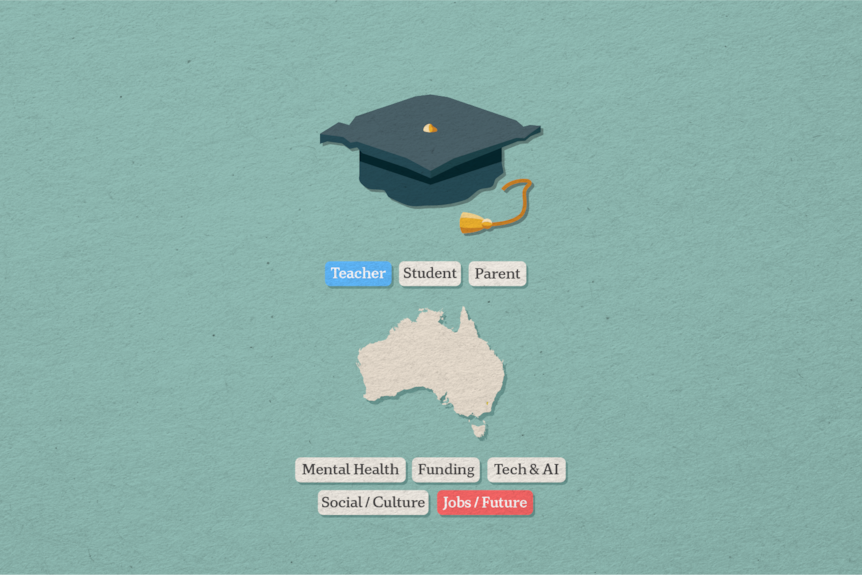
“Teaching is a profession. There is no reward for excellence. If you excel, or try to speak up, they push you, and they unite at the core. The best teachers leave and never look back. ”
Peter, former teacher, ACT
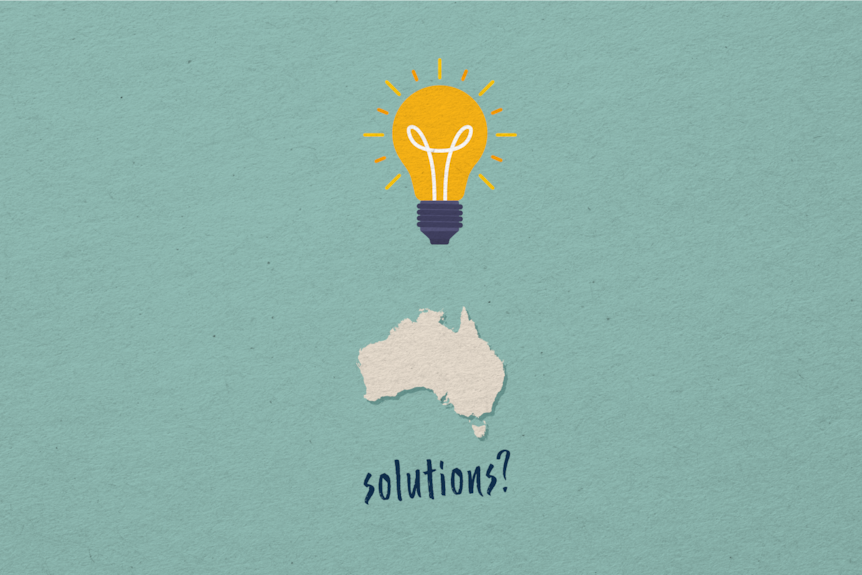
While many responses acknowledged that education issues were multifaceted and required complex solutions, others volunteered to give some quick thoughts and ideas about what they would like to see done.
Banning AI in schools, voting rights for minors, smaller class sizes, online learning for remote communities and greater involvement of students in future planning were among the proposed solutions, some of which we More in-depth coverage in other stories.
Many were willing to take the first step towards change, while others were unsure how, either because of their young age or because of reactions from employers, schools, parents or society, and felt powerless.
What do you think?
If you want to read ABC’s education coverage or related stories that impact communities, you can go to the top ABC Learning Homepage Or click on a link from the option below:
And, if you’d like to contact us with an educational story lead, or have an idea you’d like us to cover, you can write to us through the form on this page.
Read the story Chinese and Indonesian.
Credit
- Audience engagement and productivity: Steven sees
- Pictures and designs: Jarrod Fankhauser
- Additional reporting: Max Walden and Oscar Coleman
- Chinese and Indonesian translations: Peter P. and Aaron Rinaldi
- Additional graphics and translations: Ben Nelson
#system #broken #Hundreds #students #parents #teachers #views #education